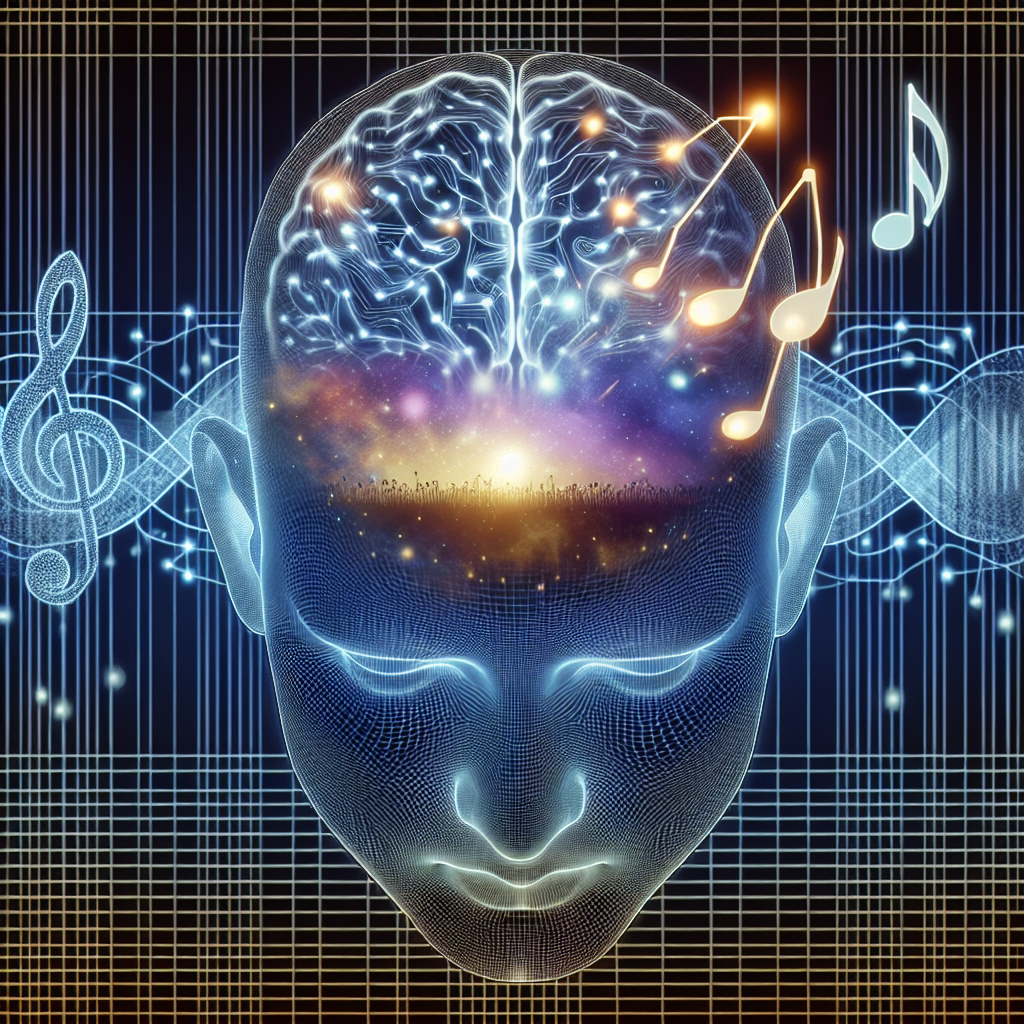The music industry is known for its fast-paced and high-pressure environment, which can take a toll on the mental health of those working within it. Long hours, tight deadlines, and the constant demand for creativity and innovation can lead to high levels of stress, anxiety, and burnout. In recent years, there has been a growing awareness of the importance of mental health in the music industry, and a recognition of the need for better support and resources for those struggling with mental health issues.
One emerging technology that shows promise in improving mental health in the music industry is artificial intelligence (AI). AI has the potential to revolutionize the way mental health is assessed, diagnosed, and treated, offering new tools and solutions to help individuals manage their mental health more effectively. In this article, we will explore the ways in which AI can be used to improve mental health in the music industry, and the potential benefits it can bring to those working in this high-stress environment.
AI and Mental Health Assessment
One of the key ways in which AI can improve mental health in the music industry is through more accurate and efficient mental health assessment. Traditionally, mental health assessments have relied on self-report questionnaires and interviews with mental health professionals, which can be time-consuming, subject to bias, and often reliant on the individual’s ability to accurately report their symptoms.
AI has the potential to streamline the mental health assessment process by analyzing large amounts of data, such as social media posts, text messages, and other digital communications, to identify patterns and indicators of mental health issues. This can help to provide a more accurate and objective assessment of an individual’s mental health status, allowing for earlier detection of potential issues and more targeted interventions.
For example, AI-powered tools such as sentiment analysis algorithms can analyze the tone and content of social media posts to detect signs of depression, anxiety, or other mental health issues. By tracking changes in an individual’s online behavior over time, AI can help to identify patterns that may indicate a decline in mental health and alert the individual or their support network to take action.
AI and Mental Health Treatment
In addition to improving mental health assessment, AI can also play a valuable role in the treatment of mental health issues in the music industry. AI-powered tools can provide personalized recommendations for mental health interventions, such as therapy, medication, or lifestyle changes, based on an individual’s unique needs and preferences.
For example, AI chatbots can offer real-time support and guidance to individuals experiencing mental health crises, providing resources, coping strategies, and emotional support when needed. These chatbots can be accessed 24/7, offering a lifeline to individuals who may not have immediate access to mental health professionals or support networks.
AI can also be used to develop virtual reality (VR) therapy programs that simulate real-life scenarios and environments to help individuals confront and overcome their fears and anxieties. VR therapy has been shown to be effective in treating a range of mental health issues, including phobias, PTSD, and social anxiety, and could be a valuable tool for those in the music industry facing performance anxiety or other stress-related issues.
AI and Mental Health Monitoring
Another key benefit of AI in improving mental health in the music industry is its ability to monitor and track an individual’s mental health status over time. By analyzing data from wearable devices, such as smartwatches or fitness trackers, AI can provide real-time feedback on an individual’s stress levels, sleep patterns, and other key indicators of mental health.
This data can help individuals to identify triggers for their mental health issues, track their progress over time, and make informed decisions about their treatment and self-care strategies. For example, AI algorithms can analyze patterns in an individual’s sleep data to identify periods of poor sleep quality or insomnia, which are common symptoms of depression and anxiety, and provide recommendations for improving sleep hygiene and overall mental well-being.
FAQs
Q: Is AI a replacement for traditional mental health treatments?
A: AI is not intended to replace traditional mental health treatments, such as therapy or medication, but rather to complement and enhance existing treatments by providing personalized, real-time support and guidance.
Q: Are AI-powered mental health tools secure and confidential?
A: AI-powered mental health tools are designed to prioritize user privacy and confidentiality, and adhere to strict data protection regulations to ensure the security of personal information.
Q: How can individuals in the music industry access AI-powered mental health tools?
A: AI-powered mental health tools are increasingly available through online platforms, mobile apps, and wearable devices, making them easily accessible to individuals in the music industry and beyond.
In conclusion, AI has the potential to revolutionize mental health care in the music industry by providing more accurate and efficient assessment, personalized treatment recommendations, and real-time monitoring of mental health status. By harnessing the power of AI, individuals in the music industry can better manage their mental health and well-being, leading to a more sustainable and fulfilling career in this demanding industry.

